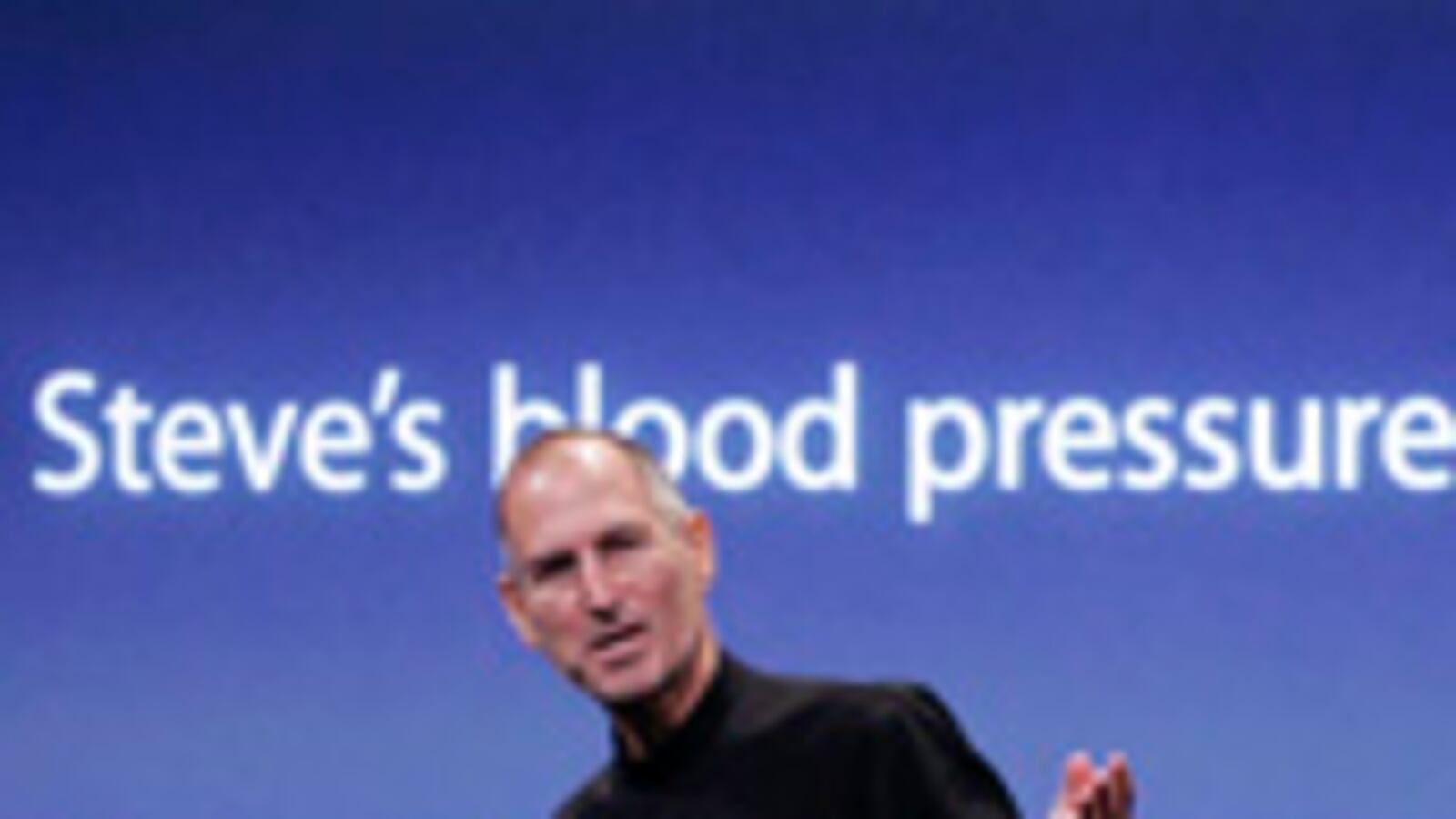
Did Steve Jobs receive a liver transplant because he’s rich? He certainly had money enough to travel from his home state of California and pay all the expenses to live and be listed at a Tennessee transplant center. As of June 19, nearly a quarter of the 16,412 nationally listed end-stage liver patients reside in California, while Tennessee lists only 229 on its waitlist. If he’d waited at his home in California, where I live and wait, he may well have died.
Maybe Mr. Jobs will use some of his $5 billion and estimable genius to help remake a system that’s not working.
Every American patient in need of an organ transplant quickly learns the unpleasant truth that medicine is not philanthropy, because one thing has time and again proven certain: No matter your diagnosis, if you have the financial means, there’s usually a way, or, at very least, a greater chance at survival.
I am a ward of Medicare and Medicaid, and need the help of a Los Angeles County Section 8 voucher to pay my rent. I live on $22,000 annually. How would I pay for transportation and lodging out of state? Who would help care for me after my transplant? I am certain the 16,412 patients listed on the national waitlist would appreciate having the means to move to states where livers are more readily available, like Jobs did. Who advocates for people too sick, uniformed or impoverished to help themselves before it’s too late? Aren’t our lives important?
I am listed at UCLA, one of the largest transplant centers in the world, and I’ve been waiting nearly seven years. If I’d been transplanted in 2002, my prognosis would have been excellent. Now, the venous system routing blood around the scarred parts of my liver is more complex, more liable to rupture. A transplant, if and when I receive one, will be more dangerous. If I were a celebrity or sports figure or even the child of a prominent physician, funds likely would be available.
For those of us without wealth and prestige, “You need a liver transplant” are words you do not want to hear. But those are exactly the words doctors used after my diagnosis of Budd-Chiari Syndrome, a blood-clotting disease so rare that my hepatologist, Sammy Saab, ranks its incidence at between one in five-to-seven million. One day I was at the gym for two hours, the next I lay in bed shivering under my blanket in 80-degree heat. On the third day, my head and belly hurting with an intensity that robbed me of language, I went to a local emergency room to learn that, at age 42, I was dying.
My belly, legs, and back swelled with fluid, and I gained 65 pounds in two weeks eating nothing and needing anti-emetics to keep medications down. Chained to the oxygen delivery system in my room, I inhaled shallow breaths, my athlete’s lungs competing against the weight of a 50-inch belly, giant spleen, and engorged liver. Orderlies wheeled my bed wherever I needed to go: into elevators, down freezing corridors and into exam rooms where monolithic machinery waited for the insertion of my ailing body. Sliced open from breast to hip, the constant grind of bed sores, needles, midnight awakenings and oozing surgical staples left no time for despair. It’s hard to imagine Steve Jobs, CEO of Apple, suffering as much as I did, but images of him broadcast in 2008 clearly showed a man who was dying: emaciated, gray-rather-than-pink skinned, all cheekbones and eyes. I cannot begrudge his receiving a transplant. No one “deserves” a liver.
July will mark the anniversary of my illness. With a drug regimen, careful monitoring, and scrupulous attention to the signals my body sends, I have survived. How lucky I’d feel to be back to a life without debilitating fatigue, constant pallor, racing heart rate and dizziness. Perhaps, if I were rich, I’d move to Tennessee, Indiana, or Florida, where wait times for liver transplants are among the lowest in the country. Perhaps post-transplant, I could work full-time again, afford that dream apartment closer to the ocean. I remind myself daily how fortunate I am to receive medical care at a world-renowned center. I give thanks for doctors who do their best to ensure my stability. I’m one of the lucky ones, and, many days, I do feel lucky. I can live on my own and work three hours a week as an adjunct professor. It’s not the life I remember, but it is a life. If I’d had the transplant seven years ago, how different my life might be now: full-time work, scuba diving, solo travel, carefree and unworried about the constant threat of dying.
Americans must be encouraged, perhaps even required, to donate organs, as they are in Spain. President Obama must consider transplant inequities as he hammers out his health-care plan. And just maybe, Mr. Jobs will use some of his $5 billion and estimable genius to help remake a system that’s not working.
Linda Alcorace is a writer and adjunct professor of English at Santa Monica College. Her work has also appeared in The Los Angeles Times and The Copley Press.






